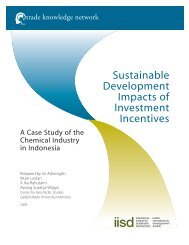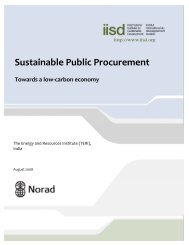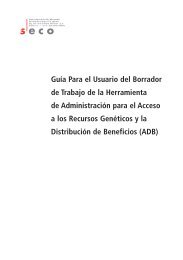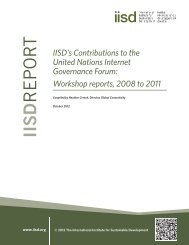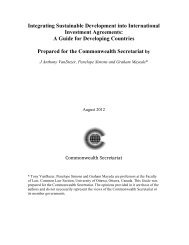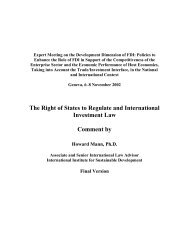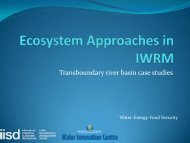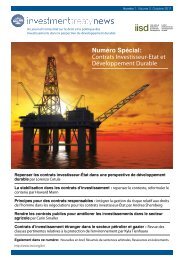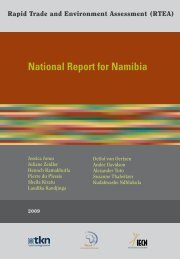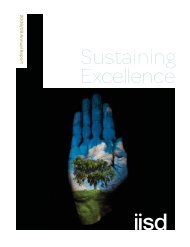Earthenterprise Tool Kit - International Institute for Sustainable ...
Earthenterprise Tool Kit - International Institute for Sustainable ...
Earthenterprise Tool Kit - International Institute for Sustainable ...
You also want an ePaper? Increase the reach of your titles
YUMPU automatically turns print PDFs into web optimized ePapers that Google loves.
EarthEnterprise <strong>Tool</strong> <strong>Kit</strong><br />
I nvestment Fund, socially responsible investors like the Calvert Gro u p,<br />
investment bankers such as ScotiaMcLeod,and export financiers like the Export<br />
Development Corporation. Venture capitalists, strategic investors that use their<br />
own corporate equity to invest in other companies, community loan funds and<br />
government investment agencies, such as the Federal Business Development<br />
Bank, are also sources to consider.<br />
Each type of investor has different interests. Some focus on debt instruments<br />
and others on equity. Their requirements <strong>for</strong> guarantees or security vary, as do<br />
the rates of return they seek, their degree of involvement in the companies in<br />
which they invest, and how they realize their return.<br />
It is preferable <strong>for</strong> an enterprise seeking capital to receive it from a number of<br />
different sources. This allows a match between debt and equity raised and<br />
business requirements, and generally increases the likelihood of meeting<br />
financing targets. While banks and other sources of debt financing will<br />
undoubtedly be important, certain sources of equity financing are absolutely<br />
crucial to successfully capitalizing a SME.<br />
Venture capitalists are often criticized as being tough on SMEs, but their risk or<br />
venture orientation makes them desirable sources of investment. Venture<br />
capitalists look <strong>for</strong> growth-oriented companies and often provide sorely needed<br />
financial leadership to young firms.<br />
High net-worth individuals (“angels”) are good sources, especially <strong>for</strong> early<br />
stage financing. In North America, angels are becoming more common,<br />
particularly as the older third of the population enjoys a higher level of<br />
a f f l u e n c e . SMEs should approach these individuals through accountants,<br />
lawyers, investment advisors, and other professionals. Angels tend to invest in<br />
their own communities or areas of expertise and can add greatly to a firm’s<br />
management capacity.<br />
Investment bankers manage their own equity or the funds of others, and often<br />
have a strategic interest or area of specialty. They also bring enterprises to<br />
capital markets <strong>for</strong> additional investment.<br />
General and mutual funds seldom invest in SMEs. They tend to stick to<br />
secondary markets — stocks and bonds. Some fund managers, however, do<br />
focus on small and/or sustainable businesses.Socially responsible investors also<br />
tend to stay in secondary capital markets but sometimes create specific funds<br />
<strong>for</strong> SMEs. These funds are usually included in an internal portfolio or directed<br />
by an independent manager.<br />
Strategic investors are a largely unknown source of capital <strong>for</strong> SMEs. Certain<br />
larger (and some mid-sized) companies invest their equity in SMEs in order to<br />
RAISING MONEY FOR SUSTAINABLE ENTERPRISES<br />
81




